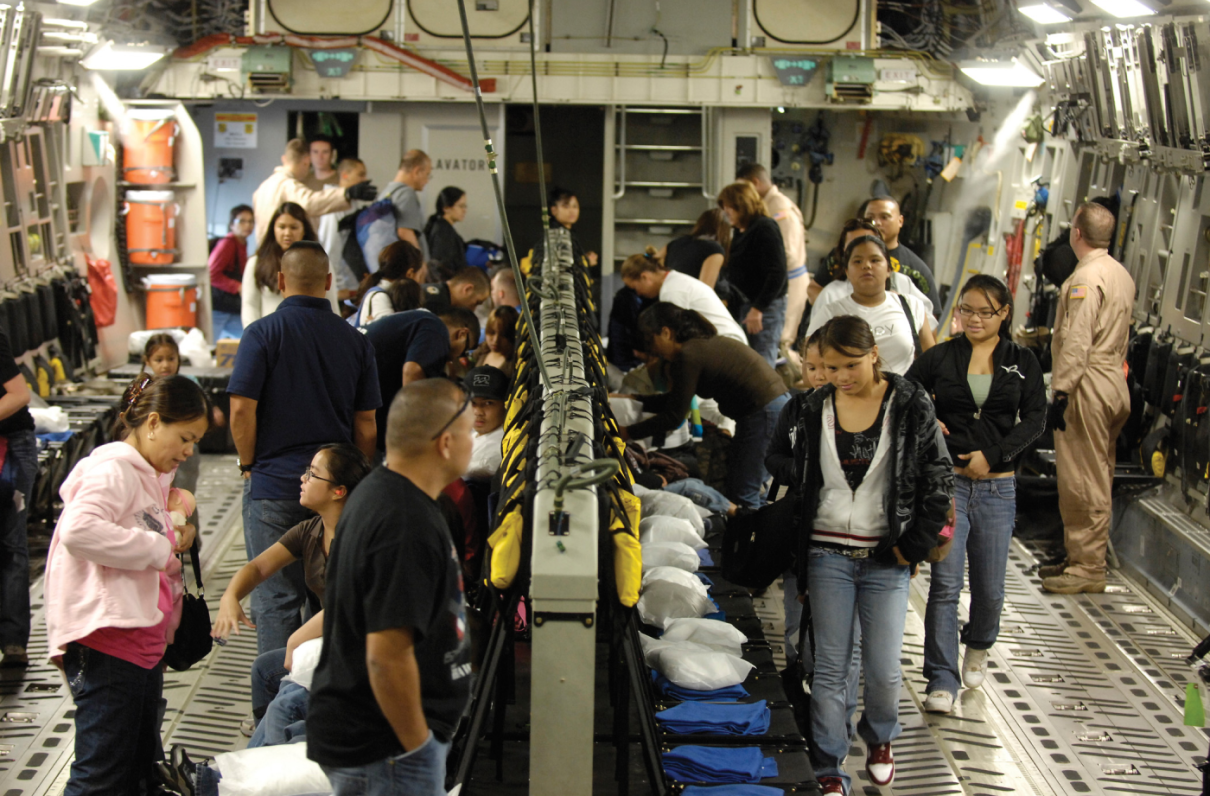Editor’s note: This article by Steve Beynon and Patricia Kime originally appeared on Military.com, a leading source of news for the military and veteran community.
The Army on April 21 unveiled an expansive set of new policies aimed to create one of the most consequential sets of quality-of-life improvements ever for military parents, including expanded leave and making it easier for pregnant soldiers to continue their careers.
The new directives will affect 400,000 soldiers who are also parents, including 29,000 single fathers. Most of the policies arose from a grassroots effort by midlevel and noncommissioned officers and feedback from parents on social media, not senior leaders who typically craft new rules.
"We want to normalize parenthood in the military," Maj. Sam Winkler, who worked on the new policies and serves in the 4th Cavalry Brigade, 1st Army Division East, told reporters. "It should be celebrated and encouraged, and you shouldn't choose between having a career and a family."
To ensure at least one parent is home with their child, all soldiers who give birth are excused for one year after delivery from all duty that exceeds one normal duty day. That covers deployments; all field training, including Combat Training Center rotations; any training events away from a soldier's home station; and temporary duties.
That one-year deferment from long-term duties also applies to non-birth parents as necessary and soldiers undergoing fertility treatment, according to the Army's new policy.
[RELATED: TRICARE Expands Childbirth, Maternity Benefits Via 5-Year Trial Program]
Soldiers still lactating and breastfeeding after a year will be granted an extension to be excused from deployments and training events where lactation accommodations cannot be guaranteed.
The new policies include allowing pregnant officers to attend schools needed for promotion, such as the Captains Career Course. Pregnant noncommissioned officers will not be allowed to attend their promotion schools, given the physical requirements in many of those courses, but the Army recently introduced a new policy that allows NCOs to be promoted before attending those schools.
Commanders must also provide soldiers with lactation breaks at designated areas every two to three hours for no less than 30 minutes each. And soldiers must be furnished with a private space, other than a restroom, with a door that can be locked to breastfeed or express milk. That space must include a place to sit, a flat surface and a refrigerator to store the milk.
"It's a huge thing to improve quality of life," Staff Sgt. Nicole Edge told reporters at the Pentagon on Thursday. "We get posts every day at [The Army Mom Life] that constantly share how they're being held back from promotions or difficulties being a breastfeeding mom."
[RELATED: Doorstep Deliveries Starting June 1 for These 8 Military Commissaries]
The Army Mom Life is a social media group on Facebook and Twitter run by mothers in the military who discuss parental issues in the force. Feedback posted in the group’s chats spurred the policy changes.
Army Reserve and National Guard troops will be granted 12 paid drill days off, the policy notes. That ends up being between three to six months, as part-time troops train two to four days a month on average.
The fiscal 2021 National Defense Authorization Act, which was signed on Jan. 1, 2021, required the Defense Department to provide drilling reservists at least 12 weeks of paid maternity leave for drill days or any mandatory events, as well as retirement point credits for those missed activities.
The new Army policy allows the service to comply with that law. For every unit assembly during which parental leave is used, soldiers will accumulate one retirement point, for a maximum of 12 points during the entire paid parental leave period.
Following the Army's announcement, a Defense Department spokeswoman told Military.com that the policy is "in its final stages of completion and is expected to be published soon."
"It will apply to all Reserve components across DoD when published," Pentagon spokesperson Lisa Lawrence said in an email April 21.
[RELATED: Pregnant Military Women Face Long Wait Times, Long Drives for Needed Care]
Lawrence attributed the delay to the fact that the legislation provided a maternity leave benefit but did not create the necessary leave authority. The DoD needed to determine whether it had sufficient authority to implement the benefit without additional legislation.
She added that, while the legislation was signed last year, the benefit will not be retroactive to include drilling reservists who have had babies since January 2021 and have missed drill.
"There was no ability for Reserve Component members to take 'maternity leave.' As a result, the Department first had to create a maternity leave status for members to use," Lawrence wrote. "Because the maternity leave status did not previously exist, there is no ability for Reserve Component members to take maternity leave prior to the issuance of the policy. Thus, Reserve Component maternity leave benefits are prospective only," from the day the policy is published.
The new policies are aimed at better retaining soldiers -- the idea being that if the Army is more family friendly, more people would want to enlist or commission, and more soldiers will elect to continue their service.
"We recruit Soldiers, but we retain families," Gen. James McConville, chief of staff of the Army, said in a statement. "Winning the war for talent means making sure our best and brightest people don't have to choose between service and family."
In addition, the new rules direct commanders to give soldiers more time with their families and be more flexible when it comes to parenting matters.
[RELATED: Military Families Still Struggling With Mold at Privatized Housing]
"Commanders are encouraged to give soldiers maximum flexibility to personally attend to short-term, unforeseen parenting requirements, even when doing so would interfere with military duties," the new policy notes. "This includes, but is not limited to, unscheduled childcare responsibilities due to child development center/school closures or child illness. In cases where training and operational requirements allow a soldier's absence, the soldier will not be charged ordinary leave if remaining in the local area to care for their children."
The Air Force, Navy and National Guard Bureau have yet to publish new policies. When asked about any pending updates to the policy on April 14, Navy officials said they were waiting for direction from the Defense Department.
"We are waiting on [Office of the Secretary of Defense] guidance to implement the NDAA changes to Parental Leave, including maternity leave for drilling reservists," said Lt. Cmdr. Travis Callaghan, public affairs officer with the Chief of Naval Personnel, in an email.
Making a Difference in Military Life
Military spouse blogger Mrs. Navy Mama shares her support of MOAA’s efforts to help military families and how you can get involved.


